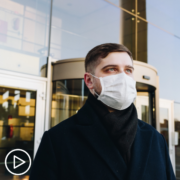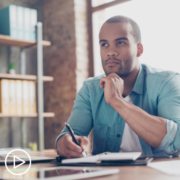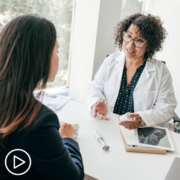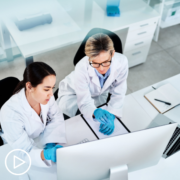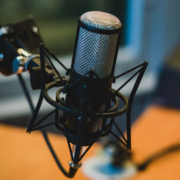Coronavirus & AML: What You Should Know
Coronavirus & AML: What You Should Know from Patient Empowerment Network on Vimeo.
Dr. Naval Daver, an AML specialist, shares advice for AML patients related to precautions surrounding the coronavirus and discusses how the pandemic is affecting AML care.
Dr. Naval Daver is an Associate Professor in the Department of Leukemia at The University of Texas MD Anderson Cancer Center. More about Dr. Daver here.
Related Resources:
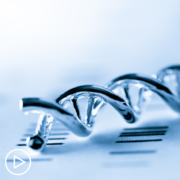
|
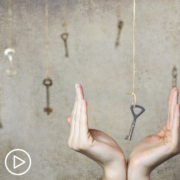
Being Pro-Active In Your Care: Key AML Testing to Advocate For |
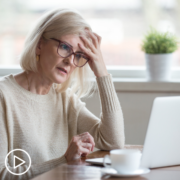
Confused About AML Genetic Testing and Treatment? What You Need to Know |
Transcript:
Katherine:
With COVID-19 affecting all our lives right now, what should AML patients be considering at this time?
Dr. Daver:
There’s a lot of guidelines on general approaches to managing things in COVID. And all of those guidelines heavily center, as we would think intuitively, on precautions.
Hand washing, minimizing contact, avoiding crowded places, trying to get treatment, potentially locally, if there are equivalent options available. We have not changed any of our frontline – we discuss this a lot every week in our faculty meeting.
This is discussed especially, as you know, because Houston currently is a major center affected heavily by COVID, and so, we have discussed whether we should move in a universal way to lower-intensity therapy for all patients. And we haven’t. And there’s pros and cons to that. When we do induction chemotherapy higher intensity, we, in fact, admit our patients for 28 days.
So, actually, even though it’s high intensity, the patient is more protected because they are in the room. Isolation rooms, sometimes. And they have minimum contact with outsiders. So, with COVID, actually, there’s very little opportunities or chances for them to get it. But the chemo is intensive. So, if they did get COVID, then it could be much more difficult or risky, or even fatal. On the other hand, low-intensity therapy is good because it’s low intensity and the risk of COVID, the frequency may or may not be changed; we don’t know. But the intensity we think could be lower because the immune system has not been suppressed.
However, low-intensity therapy very often is given outpatient. And so, then you have the benefit of lower intensity but the risk that you are going to be driving back and forth to the medical center, getting bloodwork, exposed to people in the waiting room, this and that. So, what we decided, after a lot of discussion among a big leukemia expert faculty in our group, was that we will still decide the optimum treatment based on the leukemia chromosome, molecular, age, fitness of the patient like we’ve always done.
And then we just have to try to encourage the patients to do as much precautions as possible. The other thing with the COVID, I think is very important is that, even though you may not be able to travel to your academic institution nearby because it’s harder to travel now, it’s still a good idea to try to get a consultation. We are doing a number of phone or email consultation, either directly with the patient, and even more frequently with their community doctor.
So, I get every day, four or five emails from academic even, and community physicians just saying, I have this patient, new AML, relapsed AML, whatever the case may be, here’s the mutation chromosome information, and I was going to do this. But the patient asked that I run this by one of my top academic colleagues. So, maybe MD Anderson. Some, I’m sure, are talking to Sloan. Some are, I know, are talking to Dana Farber. Cornell, whatever it may be. So, you can always request that. And maybe 100 percent of physicians may or may not do that.
And we’re seeing this collaboration actually. One of the positive things of COVID is we’re seeing these collaborations becoming better and better over time.
Katherine:
Oh, excellent. If a patient does need to go to clinic for a visit, what safety measures are in place?
Dr. Daver:
Yeah. So, there’s a few things we’re doing in clinic is; one is we have staggered our clinics. So, instead of having everybody come at 9:00 or 10:00 a.m., and having 30 people in the waiting room, we really have more time slots. And we ask people to come three of them at a time in the waiting room. We’re minimizing it three to five patients at most.
Of course, there’s a lot of sanitization, dispensation units everywhere, encouraged to use those. The other important thing which, unfortunately, is a double-edged sword, is that we have had to minimize the number of friends, relatives, spouses, that can come with patients.
In fact, the policy at MD Anderson, like most cancer centers, is that nobody is allowed with the patient unless the patient is physically really impaired, as in wheelchair-bound or cannot go to the restroom. Of course, there are exceptions. But generally, I know, and I actually benefit a lot from it too, when patients have their family because the emotional support also helps our medical team to get information across. The patient may be sometimes stressed and forget things. So, what we’re doing more and more is doing phone calls.
So, what I would recommend is, as soon as doctor comes in, say, hey, doctor, can I call my daughter or my wife? I want her to listen to everything. Perfect. I don’t mind. There’s a speaker on. Good.
So, that helps with communication. But those are the big changes we have done from the clinic perspective. Still seems to be working relatively smoothly. We’re still seeing almost about the same number of patients in clinic that we were before COVID. And we have, fortunately, and knock on wood, not seen big numbers of leukemia patients with COVID. And we think the primary reason is because leukemia patients are just very cautious from the beginning. Even before COVID, they knew the risks, and we want them to continue that as much as possible.

